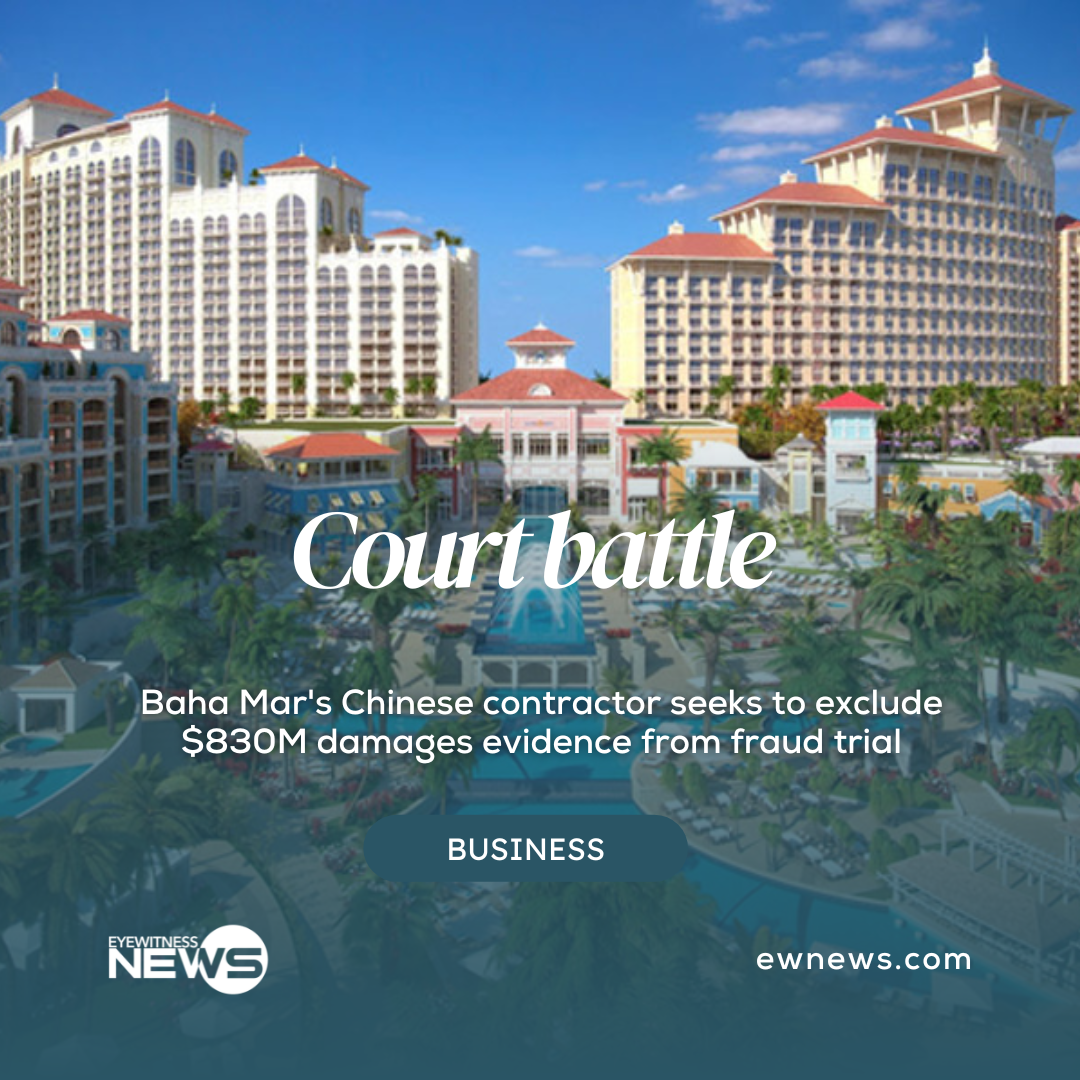NASSAU, BAHAMAS — Baha Mar’s Chinese contractor is seeking to prevent the Cable Beach mega resort’s original developer, Sarkis Izmirlian, from presenting damages evidence for his $830 million investment recovery, just weeks ahead of the fraud trial.
That trial will occur from August 1st to August 16th before New York Supreme Court Judge Justice Andrew Borrok. Izmirlian filed a $2.25 billion lawsuit six years ago alleging “massive fraud” by Chinese state-backed contractor China Construction America (CCA), claiming that the contractor intentionally engaged in work slowdowns or stoppages which prevented the project from opening to any paying guests on March 27, 2015, and contributed to BML’s liquidity crisis. The development, which was ultimately placed into receivership, was subsequently sold to its current owner, Hong Kong conglomerate Chow Tai Fook Enterprises.
CCA is seeking the court to grant a motion to exclude at trial the plaintiff’s damages evidence and argument that it is entitled to recover its alleged $830 million contribution to BML as damages. Additionally, they aim to exclude at trial the plaintiff’s damages evidence and argument that it is entitled to recover any costs incurred by BML in preparation for the March 27, 2015, partial opening.
Izmirlian’s damages expert witness, David Bones, in a 31-page expert report, asserted that “out-of-pocket” damages for BMLP – the controlling shareholder and day-to-day manager of the project’s former owner, BML – are $845 million. Mr. Bones’s statement was based exclusively on the deemed value of BMLP’s $830 million contribution to BML in 2010, plus its $15 million additional equity contribution to BML in 2015. BML Properties lost its entire investment, which David Bones, BML Properties’ expert, estimates to total $830 million in tangible and intangible assets, including land and leased facilities, improvements, personal property, contracts, approvals, hotel assets, intellectual property, intangible personal property, casino operations and license, and cash.
CCA, however, contends that BMLP is limited to claiming direct damages. BMLP it has argued should be precluded from presenting evidence and testimony concerning its purported “out-of-pocket” damages, which are simply the assets BMLP claims to have contributed to BML in or about 2010 in exchange for receiving common stock in and voting control of BML.
“The amount of that contribution is irrelevant to the calculation of damages for the plaintiff’s remaining claims, which allege a breach of contract and fraud arising from events occurring during four months beginning in November 2014 and culminating on March 27, 2015, the date on which CCA Bahamas and BML agreed to a partial opening of the Baha Mar resort,” CCA claims.
The contractor claims that BMLP cannot recover the value of its equity in BML as “out-of-pocket” damages “because loss-of-equity damages are, as a matter of black-letter New York law, consequential in nature, as New York courts have held repeatedly under analogous circumstances.”
It further noted: “Second, the “deemed value” of assets that the plaintiff and its predecessor contributed in 2010 in exchange for equity in BML is not the measure of damages sustained at the time of the breach. New York law is clear that damages for loss of an asset must be based on the asset’s value at the time of the alleged breach, which in this case took place five years after the 2010 contribution. Indeed, the plaintiff has no legally cognizable basis on which to claim to have been damaged by its contribution to BML in 2010 because it undisputedly received the full consideration and benefit of the bargain when it acquired the shares in BML and the associated control over the company.”
CCA further contends that the amount the plaintiff contributed to BML in 2010 is irrelevant to damages for its fraud claim, “which must be based on costs Plaintiff itself incurred in reliance on the alleged misstatements made in late 2014 and early 2015 about completion of construction.” CCA argues that by definition, assets contributed five years earlier do not meet that standard.






